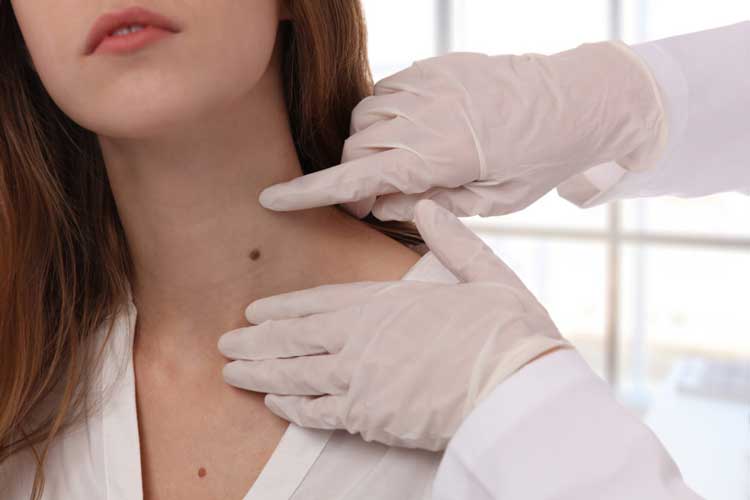Signs You Should Call Your Dermatologist About a Mole

Moles are extremely common, and in the vast majority of cases, they are completely innocent. However, sometimes, a mole can indicate that you have skin cancer. Skin cancer screenings are an important part of preventive healthcare. During these checks, if your dermatologist spots a mole that he or she thinks could be suspicious, he or she may recommend a biopsy. Between appointments with your doctor, you should keep an eye on your moles to detect any changes that would need to be checked by your dermatologist. Here are some of the signs that you should allow your dermatologist to evaluate a mole.
Change in Size
Most adults have at least one mole—and many have between 10 and 40 moles. In most cases, the size of these moles stays constant. However, in other instances, moles may suddenly increase in size. If this happens, consult with your dermatologist. This kind of change can occur in response to the growth of cancerous cells. If skin cancer is to blame, getting an early diagnosis allows treatments to be more effective.
New Mole
It is not uncommon for new moles to appear, but when they do, your dermatologist should evaluate them. Sometimes, a new mole appears as a result of melanoma, which needs to be diagnosed as early as possible. Your dermatologist can decide if your new mole is a cause for concern.
Itching or Bleeding
Moles typically don’t cause any kind of pain or discomfort. Cancerous changes in the skin can make moles become itchy or start to bleed. These symptoms can be caused by something as minor as dry skin or a skin infection, but since cancer can also be the cause, your dermatologist should check any mole in which this occurs.
Skin cancer screenings are an important part of the skin care provided at Swinyer-Woseth Dermatology. Make an appointment with a dermatologist in Salt Lake City for a screening or other skin care services by calling 801-266-8841.
